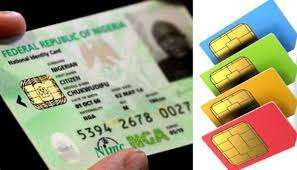The resultant effect of the Federal Government’s directive that the telecom companies to enforce compliance with its National Identification Number-Subcriber Identity Module policy by blocking outgoing calls on all unlinked lines after the deadline for the NIN-SIM verification expired on March 31 has caused some telecommunication subscribers to be left stranded on Tuesday.
While giving the directive, the government revealed that 125 million SIMs had submitted their NINs for linkage. The Nigerian Communications Commission also stated that there were 197.77 million active telecom subscribers as of February 2022.
This is an indication that over 72.77 million active telecom subscribers will be affected by the government directive after the Association of Licensed Telecommunication Operators of Nigeria confirmed in a statement on Monday, that its members would comply with the directive.
Many subscribers woke up on Tuesday to an inability to make calls on their lines. Subscribers have started visiting telecom service centres in droves to link their NIN to their SIMs.
READ ALSO: Tribunal Restrains Multi-Choice from Increasing DStv and GOtv Tariffs
The President of the National Association of Telecoms Subscribers, Adeolu Ogunbanjo, said people were rushing to the centres because of the commercial undertone of the ban.
The implication of this is that a lot of subscribers would be stuck, and businesses would be affected. There are also a lot of commercial undertones to this as a lot of people would lose their businesses, because they can’t call out. The economic and commercial implications on subscribers would run into billions which is not good for now. People can’t make calls but can receive them. That is not good at all.
According to him, telecom and NIN service centres are likely to witness a surge reminiscent of 2020 because of the government’s policy. He added that the NIN agents were likely to profit from this because of racketeering.
Ogunbanjo stated, “There is the case of new racketeering by NIN agents which we have been trying to avoid. Because people are under pressure, they may start to use third-party agents, who may not be thorough in their registration process.
“This would create new problems because if you put a face to a wrong name, the owner of the NIN would be held accountable if caught. NIN officials would make money out of this. Prior to the ban, immediate NIN registration used to be N10,000. Now, this is expected to skyrocket since subscribers have been boxed in.”
A source in one of the telecom companies added that telcos would likely suffer some form of revenue loss in the short term because of the current move by the government.

